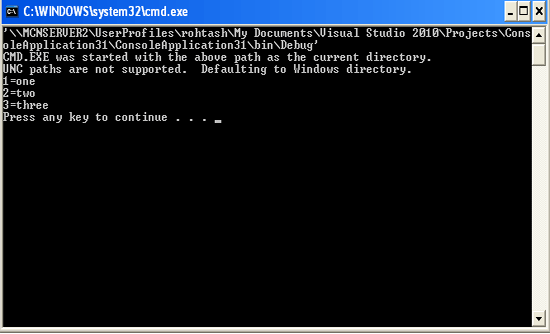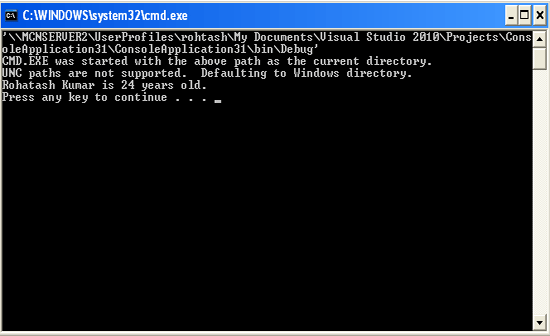Zip operator in Linq using VB.NET
This article demonstrates how to use the Zip operator to merge two sequences.
Introduction
The Zip operator is the part of .Net framework 4.0. The Zip operator combines two collections into a single collection. The combines happens in the function. It takes two arguments (the element from first source, and the element from the second source) and lets you return a combined type.
Understanding Zip
We take two collections. The first collection is collection of array of numbers.
Dim First As Integer() = {1, 2, 3}
The second collection is collection of array of strings.
Using Zip operator
Now using Zip operator to merge two collections into a single collection.
Dim zip As IEnumerable(Of String) = First.Zip(Second, Function(n, w) Convert.ToString(n) & "=" & Convert.ToString(w))
For Each i As String In zip
Console.WriteLine(i)
Next
Example 1
Module Module1
Sub Main()
Dim First As Integer() = {1, 2, 3}
Dim second As String() = {"one", "two", "three", "four"}
Dim zip As IEnumerable(Of String) = First.Zip(Second, Function(n, w) Convert.ToString(n) & "=" & Convert.ToString(w))
For Each i As String In zip
Console.WriteLine(i)
Next
End Sub
End Module
OUTPUT

Example 2
Module Module1
Sub Main()
Dim names As String() = {"Rohatash Kumar"}
Dim ages As Integer() = {24, 60}
Dim result As IEnumerable(Of String) = names.Zip(ages, Function(name, age) Convert.ToString(name) & " is " & Convert.ToString(age) & " years old.")
For Each i As String In result
Console.WriteLine(i)
Next
End Sub
End Module
OUTPUT
